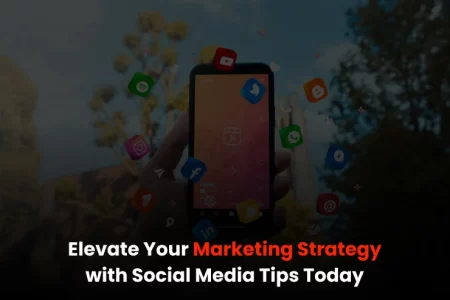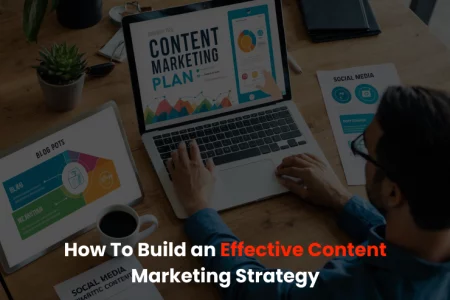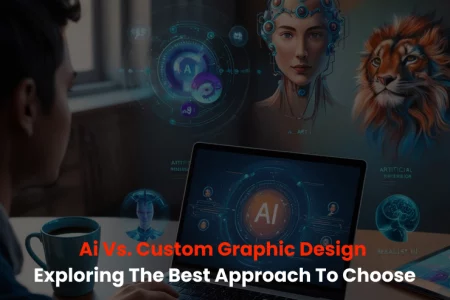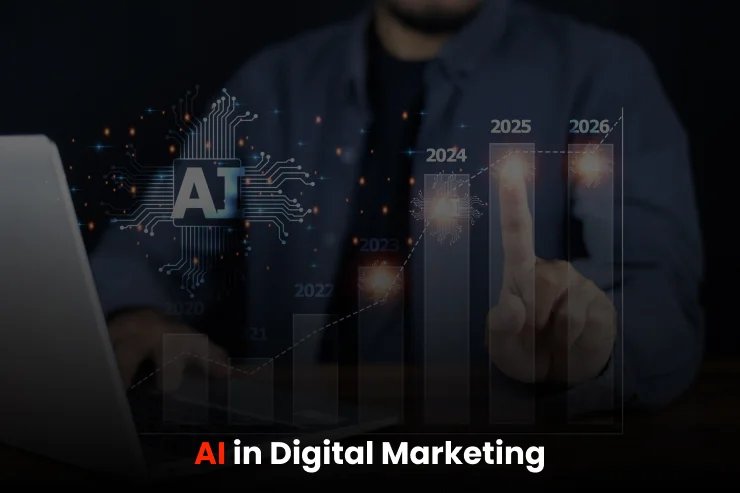Digital Marketing
Optimizing Digital Marketing with AI: Enhancing Efficiency and Impact
Businesses must consider new and inventive ways that helps improve their marketing operations and excel beyond the rest in this ever-evolving digital world.
Artificial Intelligence (AI) is one of the comprehensive technologies, specifically in the past few months. You may have heard many businesses are utilizing ChatGPT and GPT technologies to develop new products, enhance existing ones, and expand into previously untapped markets.
This trend also applies to marketing but ChatGPT isn’t the only way for marketers to take benefit from AI capabilities. This blog post will look at the AI using strategies in your digital marketing plan while maximizing its potential to bring growth.
Understanding Artificial Intelligence (AI) in Digital Marketing
AI is a handy tool for businesses overall, including marketing departments. They may use it to automate routine activities, like scheduling and managing campaigns, sending emails, and creating content.
AI in digital marketing has been around for several years, but ChatGPT has given it a boost in popularity in recent months.
Initially, the primary focus was on basic automation and chatbots that gave audiences pre-programmed responses. These might be applied to jobs like content distribution on conversational apps like Facebook Messenger and WhatsApp and lead generation through a website chatbot.
Artificial intelligence (AI) became increasingly important in digital marketing as technology evolved. Machine learning algorithms have made it simpler and faster for marketers to examine consumer data from social media, website analytics, and customer reviews. This information can be utilized to segment consumers and customize marketing campaigns and content to enhance lead conversion.
Artificial intelligence (AI) has advanced through the years, so its uses in digital marketing. These include, for example, sentiment analysis and AI-driven, personalized recommendations (think of Amazon or Netflix and their incredibly targeted content recommendations), as well as more sophisticated chatbots and voice-activated virtual assistants.
With the development of sophisticated chatbots and cutting-edge technologies like OpenAI’s GPT-3, GPT-3.5, and ChatGPT, marketers now have more options than ever before. These technologies can be utilized for data analysis, summarization, and content creation, among other things.
Benefits of Using AI in Digital Marketing
AI’s potential applications let you improve your marketing efforts in several ways.
Advanced-Data Analysis
Compared to manual data analysis, AI algorithms can analyze enormous volumes of data more quickly and precisely. Based on actual consumer data it can help marketers make educated judgments and optimize their marketing strategies by revealing insights, spotting trends, and forecasting consumer behavior.
Improved Personalization
As previously indicated, AI can evaluate enormous volumes of consumer data and offer tailored recommendations based on unique interests and behavior. This degree of customization can increase lead conversion and enhance client engagement and satisfaction.
Enhanced Employee Efficiency and Productivity
AI digital marketing enables marketers to automate repetitive duties like data analysis and campaign optimization, freeing their time to concentrate on more creative and strategic work.
Cost Savings
Artificial intelligence automation lowers the need for manual involvement in routine tasks, which results in a reduction in human resource expenses. Also, it reduces wasteful ad and campaign spending by targeting the appropriate audience and optimizing costs.
Continuous Learning and Improvement
AI systems constantly improve and adapt based on user interactions and new data. With time and data/behavior usage from actual customers, this learning process helps marketers refine their strategies, expand their targeting, and improve customer experiences.
How do Digital Marketers Use AI?
According to the internet, 64% of marketing professionals indicated they use AI tools in their jobs, although the level of integration and its intended purpose can vary greatly. Merely 21% of marketers reported profoundly integrating it into their regular tasks.
So, what is their usage of it? The top three uses of AI digital marketing are:
- • Reporting and data analysis (used by 40% of marketers).
- • Information, such as article summaries or market research (39% of marketers)
- • Content creation (38% of marketers).
How to Use AI in Digital Marketing
If you haven’t already, this is the year to start deploying AI into your digital marketing strategies. Nowadays, 46% of marketers say they are overwhelmed by the thought of integrating AI tools into their regular workflow or processes.
Through experience, we’ve learned that a systematic, strategic, and compassionate approach is the best way to implement any significant organizational change.
Define Your Objectives
Before you begin, choose the objective or target you want to achieve. Do you wish to increase the efficacy of your campaigns? Which would you prefer—saving your team money or time?
Complete this step as it is possible to assess success if you outline your objectives and quantitative KPIs.
Audit Your Infrastructure
To begin with, assemble a small team to assess your current infrastructure and tools and identify areas for adoption.
Prepare a report with all possible areas of implementation, potential outcomes, and what resources you would need to make it happen.
Evaluate your data’s quantity, quality, and accessibility to determine whether or not it is appropriate for AI applications. Remember to list any potential drawbacks, adverse effects, and positive ones.
Choose your top two or three areas to test first, as you can only throw out your marketing playbook and replace it with AI strategies after a while.
These don’t all have to be huge initiatives like revamping your email marketing strategy; small things can add up. For instance, I adore utilizing AI tools to transcribe interview tapes and take meeting notes.
Evaluate Staff Capabilities
Also, you should evaluate if your staff has the necessary skills and expertise to carry out these programs. To drive forward your AI projects, you’ll probably need to hire a consultant, recruit, or invest in training for your current employees.
For example, 40% of marketing leaders who have yet to hire someone expressly for AI say they intend to, while 62% of those who have said they have already thought about doing so. Your team is likely already worried about AI taking their jobs, so frame this as a chance for them to learn new skills and become more proficient marketers.
Select the Right AI Marketing Tools
Upon determining your objectives and priority areas for implementation, it’s time to assemble your toolkit. Although an AI feature may already be available in your existing tools, it’s a good idea to consider all your possibilities
First, choose between using a custom AI solution and an off-the-shelf one. Examples of off-the-shelf AI solutions are Google Bard, ChatGPT, and Jasper.
For an open-source AI like Llama 2, a custom solution you can build with APIs can be a potent long-term success strategy. Using your proprietary data, you can use your voice and style to teach a GPT or connect and train AI. This method requires more expertise, so you must collaborate closely with an IT department or consultant
Test and Analyze AI
It’s finally time to give it a try. Take your top two or three areas of implementation and launch your programs. To compare outcomes, set a timeframe and some goal KPIs to monitor. For example, you may set up a one-month trial period to test social media ads created and posted by AI. Throughout the month, keep an eye on, revise, and record the content.
When you’re done, evaluate how well AI-generated, human-generated, and AI-assisted content performed and develop a plan for the future.
Wrapping Up
AI is causing a stir in the marketing industry. To stay ahead of the game, it’s crucial to monitor emerging trends and continuously test out new AI solutions as they become accessible. By implementing AI in your digital marketing strategies correctly, you can increase productivity, return on investment (ROI), and customer satisfaction.
If you need more information regarding digital marketing services or AI digital marketing strategy, Assignfy is here to help!
Recent Items
Understanding The Importance Of Branding For Businesses?
Cambridge Dictionary branding defines Branding as “the act of providing a company a specific desig... Read more

Paid Vs Organic Marketing Which Is Better?
Digital marketing is not one-size-fits-all. Brands often use different strategies to reach and emplo... Read more

Elevate Your Marketing Strategy with Social Media Tips
With 94.2% of internet users using social media, it is no longer a choice for companies to have a di... Read more

How To Build an Effective Content Marketing Strategy
Content marketing, which incorporates creating and sharing useful content with your audience, is a f... Read more

Ai Vs. Custom Graphic Design : Exploring The Best Approach T...
There is a lengthy debate on AI vs. custom graphic design. Here the question arises: whether Artific... Read more

